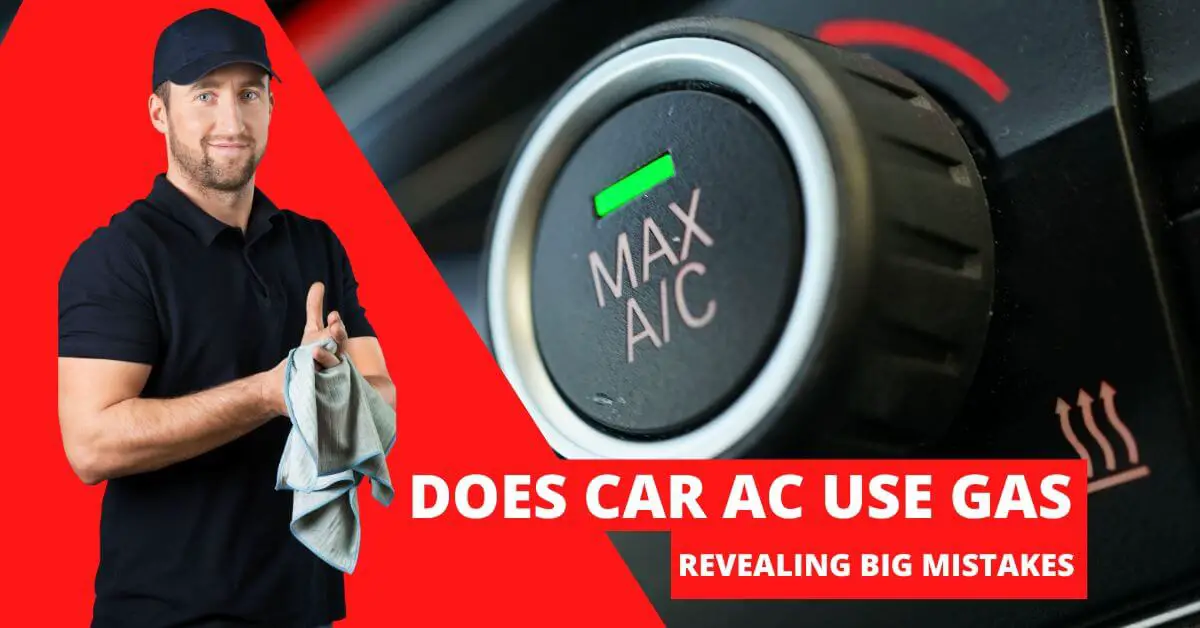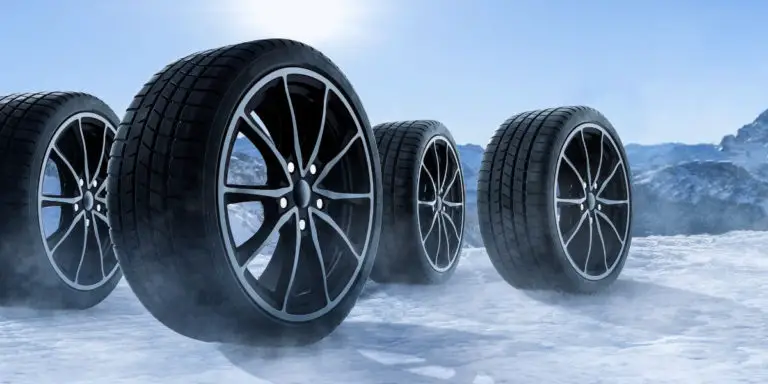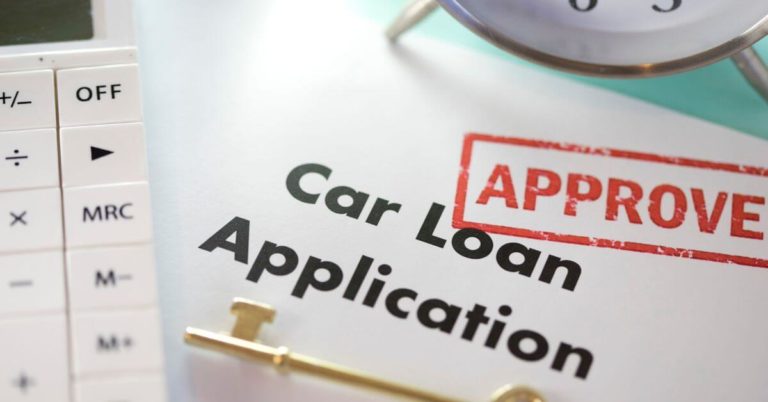Does Car Ac Use Gas | Revealing Big Mistakes
Do you ever wonder if running your car’s air conditioning (AC) uses up gas? The answer is yes; like many of your car’s features, the AC system does consume fuel.
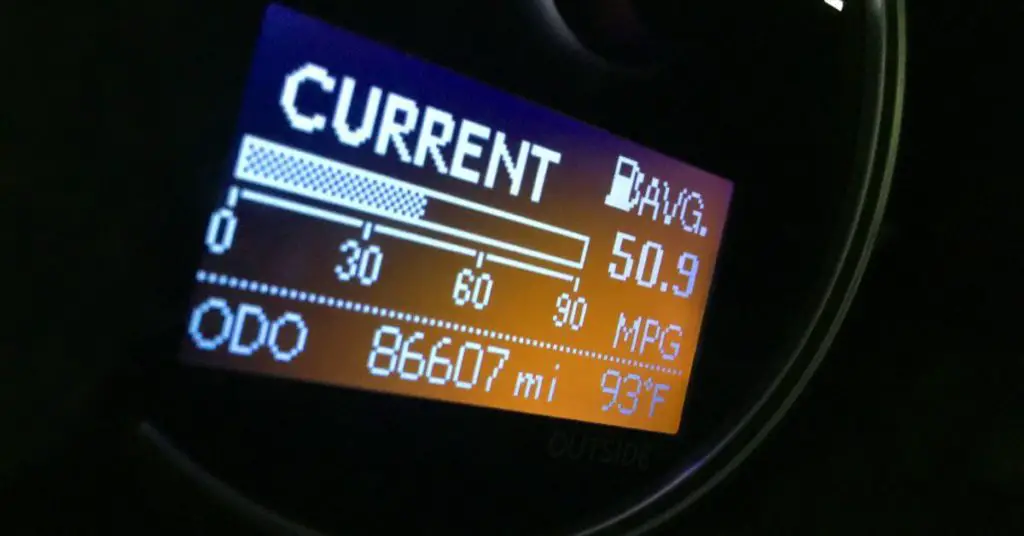
Table of Contents
How Does Car AC Use Gas?
The engine supplies power to the alternator, which powers the air conditioner.
The engine needs to work harder when the AC is on, so it needs more fuel to run.
This means that running your car’s AC will reduce fuel economy.
How Automotive Air Conditioning Works
Automotive air conditioning uses a compressor, condenser, evaporator, and expansion valve.
Refrigerant is pumped from the compressor to the condenser, cooled, and sent to the evaporator.
The evaporator pulls heat from inside your car, absorbs it into a gaseous state, and then redirects it back to the compressor.
The compressor then recirculates the refrigerant, maintaining cool air in your vehicle’s cabin.
Types of Air Conditioners
Your car may have either a belt-driven or electric air compressor.
A belt-driven ac compressor runs directly off the engine, while an electric air compressor is powered separately and uses less gas.
The condenser redirects heat away from your car’s cabin and disperses it outdoors using fans powered by the car’s battery.
Electric Air Compressor
Hybrid and electric cars typically use an electric air compressor.
Which uses electricity to convert air from outside the car into cool, conditioned air pumped into the cabin.
This system offers several advantages over traditional ACs:
- Improved gas mileage
- Better interior comfort
- Lower noise levels
However, due to their complexity, hybrid and electric cars’ air compressors may require more frequent maintenance than conventional ACs.
Big Mistakes To Avoid When Using Car AC

Although running your car’s AC will reduce fuel economy, there are steps you can take to minimize gas consumption while still keeping your car cool on a hot day:
- Start the air conditioner before driving.
- Make sure your A/C is in good condition and well-maintained
- Set the thermostat to a low but comfortable temperature
- Check your car’s air filter every few months to ensure it’s clean.
- Keep windows rolled up while driving, especially at highway speeds which helps maintain consistent pressure inside the cabin and aerodynamic drag.
How Much Gas Does Car AC Use?
The exact amount of gas your car uses when the AC is running will depend on the make and model of your vehicle.
Also, other factors such as speed, driving habits, humidity, and temperature levels.
Car ACs use 3-12% of a car’s total fuel economy.
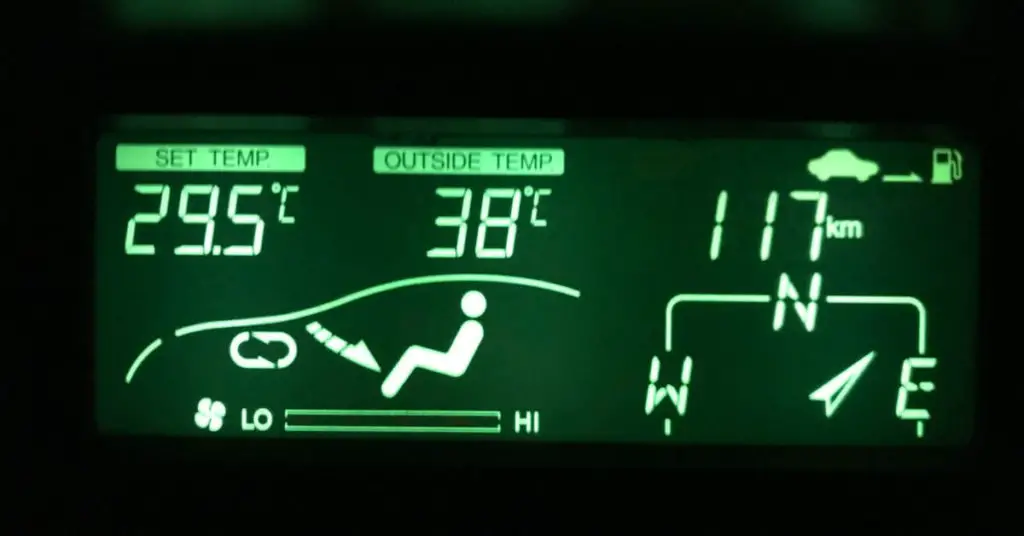
However, the Environmental Protection Agency and Department of Energy say, “under very hot conditions, using AC can reduce a conventional car’s fuel efficiency by over 25%, particularly during short trips”.
Hybrids, plug-in hybrids, and electric vehicles (EVs) may be more heavily impacted by AC usage in fuel economy percentages.
This brings us to another important aspect of fuel efficiency – how many miles can your car actually travel on a single gallon of fuel?
To understand more about this, check out our latest guide on How Many Miles In A Gallon: 5 Incredible Efficiency Tips
What Are Some Alternatives To Running Your Car’s AC?
If you don’t want to use up too much gas while driving with the windows down, there are some alternatives you can consider:
- Park in shady areas – Parking in shaded areas can help keep your car cool and reduce the need for using your car’s AC.
- Use sunshades – Sunshades can be placed on your windshield and side windows to block out direct sunlight and help keep your car cool.
- Open windows strategically – When driving at low speeds, opening all four windows can create a wind tunnel effect that helps cool down the cabin without using much gas.
Tips For Maintaining Your Car’s Air Conditioner
Regularly maintain your car’s air conditioner to ensure it runs efficiently and uses as little gas as possible.
Here are some tips for proper maintenance:
- Inspect the air filter regularly: An old, dirty air filter can reduce airflow and impede the system’s performance.
- Keep vents clean: Make sure all air vents are clear and unobstructed to maximize airflow.
- Check the refrigerant levels: Ensure your car’s cooling system has enough refrigerant to cool the air.
- Have a professional inspect the system periodically: A mechanic should be able to check for any issues causing poor performance or inefficient cooling.
Leaks in Your Air Conditioning System
If your car’s AC system leaks, it could be due to a faulty seal or hose.
A leaking A/C may not be able to cool the cabin.
In such cases, you should have the system checked out by a professional as soon as possible.
Leaks can also occur if refrigerant levels are too low.
You might also like to know How Much the Average Car Weighs?
Steps to safely refill your car’s gas levels
Ensure the engine is off and the AC system is cooled before adding refrigerant.
Wear protective gloves and goggles when handling the refrigerant.
Use a gauge attached to your low-side port to measure the pressure of your system.
Attach an adapter, hose, and refrigerant canister to the low-side port.
Slowly add refrigerant until the gauge shows it is full.
Turn off your A/C and remove the canister, adapter, and hose.
Check for any potential leaks in your AC system with a leak detector.
Secure all valves before turning your engine on again.
Conclusion
Your car’s AC does use some fuel, but it is a small price to pay for the comfort and enjoyment that comes with cool air on a hot day.
If you are concerned about how much gas your car’s air conditioning system uses, there are ways to minimize its impact.
Do you have any tips for minimizing how much gas your car consumes?
Please share them here with us in the comments below!

